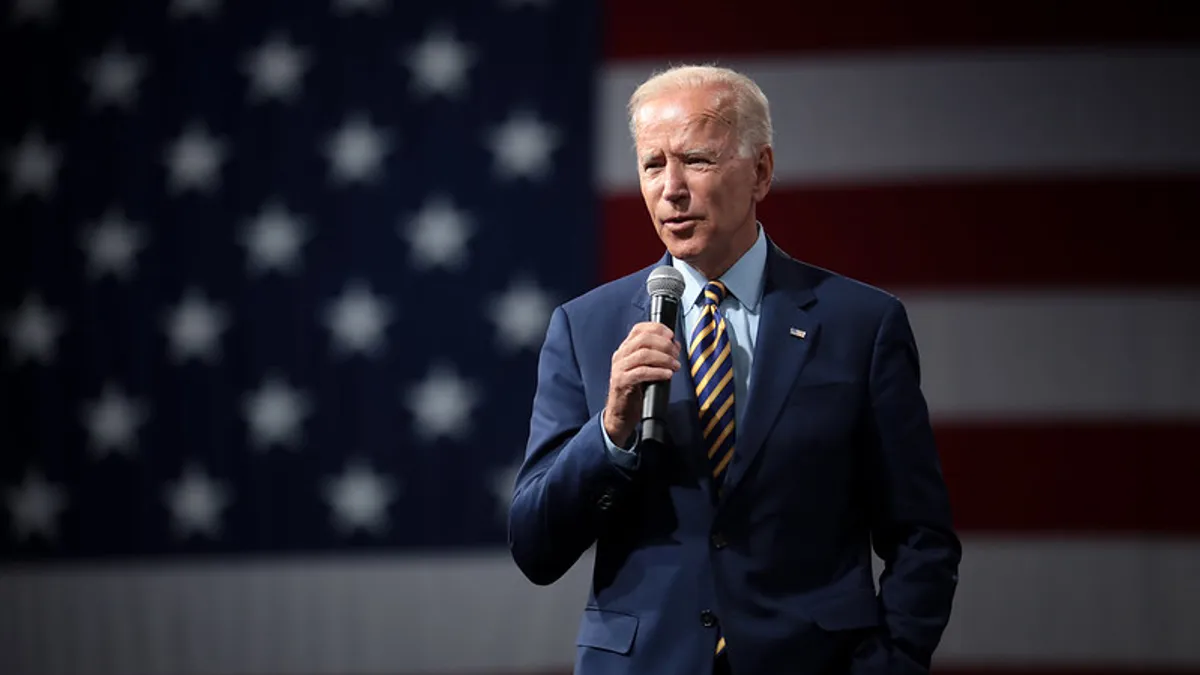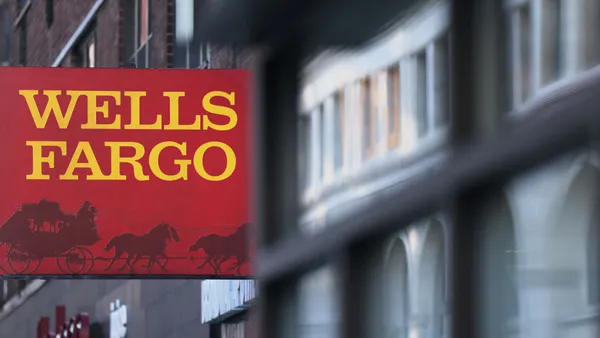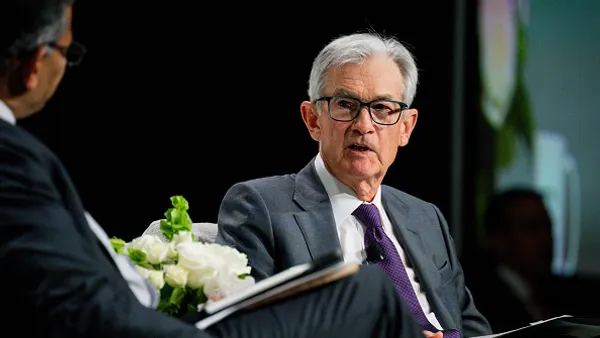As the impact of the coronavirus pandemic threatens to increase the number of unbanked households in the country, the push for alternative banking solutions could get a boost under a Joe Biden presidency — and that's a good sign for fintechs, some experts said.
"I do think we're going to see pressures from the Biden side for allowing more alternatives to traditional banking," David Schultz, a Hamline University political science professor, said, in the event the former vice president wins the election. "I think that people are going to be looking for post-COVID-19 alternatives for banking and for new types of institutions to make it more accessible, especially in their communities."
The Democratic Party has long backed initiatives focused on financial inclusion, including calls to reestablish postal banking and create public banks. Financial inclusion is also a mission often touted by most fintechs.
With that in mind, a Biden presidency could usher in fintech's "golden years," Kara Ward, a Holland & Knight partner, said last month during a webinar.
"I do think fintechs will probably have a couple of golden years here under Biden, as there's an effort to democratize and make more services available to folks who have been underserved in the past," she said.
While the number of banked households in the U.S. has trended upward in recent years, the impact of the coronavirus could likely reverse that trend, according to a recent report by the Federal Deposit Insurance Corp. (FDIC).
"[F]indings from multiple years of the survey suggest that the unbanked rate is likely to rise as the unemployment rate rose from its level prior to the pandemic," FDIC Chairman Jelena McWilliams said in a speech last month.
Fintechs such as challenger banks and peer-to-peer payments companies often tout their nontraditional methods of providing financial services that often come with fee-free accounts and alternative methods for checking credit.
In some cases, the pandemic has helped fintechs showcase their strengths. Challenger banks Chime and Current found ways to get customers their stimulus checks early, and fintech lenders such as Kabbage, Funding Circle and BlueVine successfully lobbied to participate in the Paycheck Protection Program (PPP) alongside traditional banks.
PayPal and Square were also approved to become direct lenders for PPP and were allowed to disburse stimulus checks.
The government's coronavirus relief package relied largely on banks to distribute fiscal aid, and some have come under scrutiny for their handling of PPP.
JPMorgan Chase, Citi and U.S. Bank reportedly used a two-tiered system to prioritize the applications of their wealthiest clients, according to The New York Times.
JPMorgan Chase, Wells Fargo, Bank of America and U.S. Bank are also facing class-action lawsuits from small businesses alleging the banks prioritized existing customers and larger loans, which yield higher origination fees, rather than processing applications on a first-come, first-served basis.
A report published last month by the House Select Subcommittee on the Coronavirus Crisis found that large banks such as JPMorgan Chase, PNC and Truist processed larger loans significantly faster than smaller ones.
Bryan Clagett, a fintech veteran and managing partner at Jamestown Associates, said he thinks it's still too early to tell whether fintechs could see significant benefits under a Biden presidency, but added the sector could see the most change in the regulatory environment.
"Traditionally, we've thought of the Democrats as being a little less interested in opening the doors and making regulation more open. The Democrats have created some of that alleged bureaucracy that inhibits some of these things, typically more oversight," Clagett said.
"The Democrats in this case — financial inclusion is important to them, and a lot of the fintechs out there are driving financial inclusion. It's conceivable that under the Democrats it could actually be a little easier for some fintechs to do business," he said.














